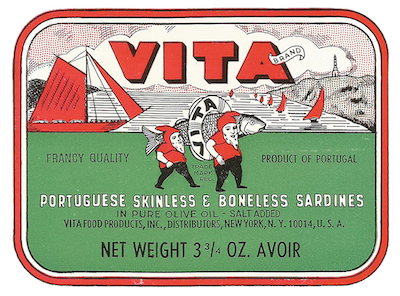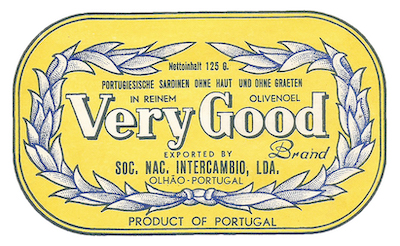A great story from what’s been a great Winter Olympics so far: Jamaican skiier Benjamin Alexander, who only started skiing six years ago, successfully finished his giant slalom race. Although he finished last and was 1m10s off the pace, his philosophy – “if you finish you beat everyone who doesn’t” – seems like a pretty great one for more than just skiing. #
Recent posts
-
Wordle variations
Wordle has taken the internet by storm. It’s fun and simple, two qualities that have inspired a host of interesting spin-offs.
-
Love bombing, gaslighting, and the problem with pathologising dating talk
James Greig examines the “concept creep” of the language we collectively use to talk about behaviour in the dating game. “Trauma”, once limited to life-altering events, now essentially means “anything that hurts me”. “Love-bombing”, a manipulative behaviour that involves showering someone with a disorientating amount of affection at the start of a relationship, is now used to describe behaviour that previously might have been called “a bit keen”. Everyone, it seems, is either a narcissist or going on dates with one.
As well as watering down useful concepts to the point that they no longer hold meaning, this language reinforces problematic relationship dynamics:
”Using this kind of language can also lead to ‘moral typecasting’: the idea that the world is split between moral agents (people who do either good or bad) and moral patients (people who have good or bad things done to them). What’s interesting is that studies show that we think of people as either one thing or the other, and very rarely a combination of the two…
“But if you think of yourself as a moral patient and anyone who hurts you as a moral agent, it means that anything you do to them becomes fair game, because you are constitutionally incapable of inflicting harm, and they are constitutionally incapable of experiencing it.”
-
How Danielle Miller Became a Scammer
The fascinating story of Danielle Miller, rich kid turned fraudster.
“Miller and Blas didn’t interact much, but their meeting set off a chain of events that would draw them both deeper into the criminal world than either had gone before. By the time their friendship fell apart, stolen credit cards would be the least of their troubles. “I was interested to know why this mean girl wanted to be friends with me,’ Miller says now. ‘And in the end I think it was because she wanted to use me for whatever crimes we were accused of.’”
This kind of profile, interesting though it is, is an example of a phenomenon that Chris Dillow has written about extensively: people, and especially journalists, are bizarrely deferential to criminals from upper and upper-middle class backgrounds. Dillow quotes Adam Smith:
“We frequently see the respectful attentions of the world more strongly directed towards the rich and the great, than towards the wise and the virtuous. We see frequently the vices and follies of the powerful much less despised than the poverty and weakness of the innocent.”
As Dillow notes:
“The sympathy of headline writers is tightly circumscribed. They rarely speak of a downfall or fall from grace after working class people are convicted.”
-
Portuguese canned fish designs
This collection of label designs from Portuguese fish cans is a treasure trove of typography, vernacular design, and wonderful illustrations. There are thousands to get stuck into.
Three favourites:

(Love the gnomes.)

(Does what it says on the tin, I suppose.)

(The world’s snootiest sardine.) #
-
Why Boris Johnson is beyond saving
Andrew Marr, newly anointed chief political commentator of the New Statesman, lays into Boris Johnson and assesses the aftermath of his inevitable departure.
There’s a sombre, personal thread running through the piece:
“I have found Johnson personally charming and amusing many times in the past. But at almost exactly the same time as he was hosting his parties in Downing Street, having a high old time lecturing the rest of us, I was burying my father.
…
“In the end, it’s all about authority. Belief. Credibility. A prime minister must be able to look his colleagues in the eye, order action, and watch change ripple out. If he can’t do that, what’s the point? You don’t need to be sitting in the grandeur of St Margaret’s, thinking about good men – in my case, my father and Jack Dromey – to feel that politics is at a grubby low point. This is the Tories’ problem. It is patriotic, not partisan, to say it is now their job to clean it up. And fast.”
-
Adam Tooze on Ukraine
Adam Tooze’s Chartbook newsletter has a great roundup of news on the unfolding tensions in Ukraine.
In particular, it has a useful explanation for the strange headlines we’ve seen in the last week or so, in which US, UK, and EU sources have been saying that an invasion is imminent, but Ukrainian sources have been playing that down. Tooze quotes Alexander Clarkson:
“I suspect the crisis timelines US and EU are focused on are out of whack with Russian elite timelines, that could lead to a build up of Russian troops staying on or close to Ukraine’s borders for months and years, and Ukrainian societal timelines focused on survival over decades.”
In other words: nobody seems to agree on the length of game that’s being played – but Ukraine itself must always play the longest of long games. #
-
Is the Pandemic Breaking Our Backs?
From last year, but relevant: the impact of our new working-from-home reality on our posture and the health of our backs:
“More recently, as the coronavirus continues to keep us mostly indoors, working in improvised offices where ergonomically unsound ironing boards, coffee tables, and laps pinch-hit as desks, our sloppy ways of sitting could be taking a toll. Parked in front of a computer, we tend to tuck under our tailbones, candy-cane our spines, scrunch up our shoulders, and crane our necks forward like wilted sunflowers. According to many experts, for every inch that the head lists off kilter, the force impinging on the neck and the back increases by ten pounds. A survey among seven hundred and seventy-eight software workers in lockdown last spring found that shoulder, elbow, and wrist pain had doubled. Bad posture has been blamed for indigestion, constipation, high blood pressure, cracked teeth, infrequent orgasms, negative thoughts, and difficulty performing arithmetic calculations; somewhere, someone has probably implicated it in the Presidential-election results.”
-
The ESG Mirage
ESG investing on Wall Street is dominated by the assessments of MSCI, which produces the ratings that large institutional investors and funds like Blackrock use to judge their investments.
The problem with these ratings is that they’re in some strange sense reversed from how one might intuitively imagine them. They don’t measure how positive the impact of a business is on the world; they measure how negative the impact of the world might be on the business. For example:
“McDonald’s Corp., one of the world’s largest beef purchasers, generated more greenhouse gas emissions in 2019 than Portugal or Hungary, because of the company’s supply chain. McDonald’s produced 54 million tons of emissions that year, an increase of about 7% in four years. Yet on April 23, MSCI gave McDonald’s a ratings upgrade, citing the company’s environmental practices. MSCI did this after dropping carbon emissions from any consideration in the calculation of McDonald’s rating. Why? Because MSCI determined that climate change neither poses a risk nor offers ‘opportunities’ to the company’s bottom line.
“MSCI then recalculated McDonald’s environmental score to give it credit for mitigating ‘risks associated with packaging material and waste’ relative to its peers. That included McDonald’s installation of recycling bins at an unspecified number of locations in France and the U.K. – countries where the company faces potential sanctions or regulations if it doesn’t recycle. In this assessment, as in all others, MSCI was looking only at whether environmental issues had the potential to harm the company. Any mitigation of risks to the planet was incidental.”
-
Cadence and speed
Going faster means doing things more quickly. But it also means setting a regular, sustainable rhythm. But how do you know how fast is too fast?
-
Novak Djokovic: Doubts over timing of Covid test
Some fantastic sleuthing by Der Spiegel and a German research group called Zerforschung, highlighted here by the BBC:
“Doubts have emerged over the timing of the positive Covid test Novak Djokovic used to enter Australia to try to compete in the Australian Open. It was provided to exempt him from rules barring unvaccinated people.
“However, the serial number on his test on 16 December appears out of sequence with a sample of tests from Serbia over this period gathered by the BBC.”
It’s a great example of what’s known in statistics as the German tank problem, after the most famous instance of it in World War II. #
-
Start with why, end with wire fraud
Another thoughtful piece on brand purpose by Nick Asbury, following his first last year. Rather than simply looking externally – focusing, say, on the shallow nature of brand purpose, or the question of whether consumers care about it – Nick instead drills into the ways that purpose can distort the internal culture of a business:
“Once you’re convinced of the rightness of your cause, it’s easier – consciously or subconsciously – to justify any means towards that end. And right now a lot of companies – whether cynically, genuinely, or somewhere in between – are convincing themselves of the rightness of their cause.”
In the case of Theranos, focusing on grand missions and purpose actually obscured the fraud:
“Imagine you’re a journalist or investor quizzing Elizabeth Holmes back when she was in her prime. What would be the harder questions for her to answer? How questions would be tough – how exactly does this device work? When questions would be equally tricky – you’ve been promising this for a while, but when exactly are you doing to deliver? Questions of what, where and who might also demand specifics – what is your current balance sheet, where is your laboratory, who has signed up so far?
“But ask Elizabeth Holmes why and she will be in her element. She will talk for hours about changing the world, transforming lives, helping our troops on the battlefield, helping our doctors at home… Through a combination of grand vision and personal founding myth, she can hold any audience spellbound.”
-
The danger of isolated beliefs
Most of the beliefs we hold comes as part of a package, fitting into a broader tradition and forming part of an interconnected web. But what happens when we develop beliefs far outside that web, beliefs that stand in isolation?
-
J for Jim Crow
Sarah Kramer tells the fascinating story of the typeface “Jim Crow”, and the intersection between typography and wider society.
The typeface is named after the minstrel character Jim Crow, whose name became a shorthand first for Black Americans and then for the system of laws that oppressed and segregated them.
The typeface has a fascinating history, and it’s fascinating even that it’s been in constant use for over a century. But to my mind the most interesting moment in its history was its reclamation by Black designers in the 1960s:
“Graphic designer Archie Boston remembers the moment he first came across the Jim Crow typeface. He and his brother, Bradford, were flipping through thick type specimen books in 1967, looking for a typeface to use in the logo for their new advertising and design agency, Boston & Boston. When he came to the page displaying the Jim Crow typeface, he saw it as the continuation of a white joke at the expense of Black people. He wasn’t surprised: ‘You know, we had grown up in a racist society ourselves. We grew up in Jim Crow.’
…
“Yet, aesthetically, Archie and Bradford Boston liked the typeface. ‘It’s strong, it has a gradation, which gives it an uplifting feeling’ Archie Boston told me. The boldness and stripes of the typeface felt almost patriotic to him. ‘I have always been a jokester, I do things to try and get reactions, you know, whether positive or negative.’ So Archie and Bradford decided to turn the Jim Crow joke upside down. The Boston brothers would use Jim Crow as their logotype.”
-
Stanwick man uses 72-year-old toaster every day
A quirky “and in other news” story on the BBC:
“A man who uses his 72-year-old toaster every day said he was embracing the spirit of the wartime generation.
“Jimmy James, from Stanwick, in Northamptonshire, said the toaster was manufactured in December 1949 and given to his parents as a wedding present.
“The 69-year-old said it only needed repairing once every six or seven years.”
But it makes a good point about the durability and repairability of modern products:
“He said the age of Mr James’ toaster was actually a benefit: ‘Newer ones aren’t always repairable. Manufacturers don’t want us to be able to mend it. They want people to buy a new one.’
“Mr May said there was ‘a growing pile of waste across the planet,’ with environment pollution and plastics joined by ‘mountains of white goods’.
“‘We have been caught up in a race to the bottom with a belief that cheapest is best,’ he said.”
-
The regenerative city
Cities are responsible for 70% of our carbon emissions, and by 2050 some 70% of the world’s population will live in them. How can we make them not just more sustainable, but truly regenerative?
-
A Grand Unified Theory of Buying Stuff
Paul Ford summarises the modern disease: not just of buying stuff, but buying stuff for your stuff:
“Years ago, I asked a friend what kind of case she planned to buy for her shiny new flip phone. She paused, a little offended. ‘I don’t like to buy stuff for my stuff,’ she said. Those words drilled directly into my hippocampus, never to depart. She’s right! I thought. Don’t buy stuff stuff! So simple! I have tried to keep to that principle ever since, and it has gone about as well as you would expect. Sure, I might spend $1,000 on a tech-giant-controlled smartphone, but I only do it every three years (nods sagely) instead of every two. This is how we win.”
Ford isn’t just taking aim at the easy targets, the shiny trinkets of consumerism:
“I have come up with a personal Theory of Stuffness, a way to structure and understand my local stuff ecosystem, especially the digital stuff. I divide Stuffworld into the Object, the Enhancements, and the Experience… The Object is the phone. The Enhancement is the Spotify app. The Experience is that of listening to music. In the past, you might buy a record player and spend 10 years curating a collection of really good jazz albums. You’d read the liner notes and learn new things over time, boring your friends in the process. Now you pay a fee, and some approximation of every bit of recorded jazz is just there on every device that plays sound. It used to take a lifetime of reading reviews and trips to the record store, or going to jazz clubs, and a ton of money. Now the cost approaches free. This is the Great Stuff Discontinuity. You just parachute in, like my kids playing Fortnite.”
-
Something Mild: Leo Robson on “Licorice Pizza”
Leo Robson thoughtfully pulls apart Paul Thomas Anderson’s latest:
“The latest film from Paul Thomas Anderson has various things in common with his work of the past fifteen years, an unignorable run… Like its predecessors, Licorice Pizza takes place at a carefully presented historical moment (Southern California in 1973), and derives key details from an existing source, the early life of the producer Gary Goetzman, here given the surname Valentine… Yet for all the continuities, the recourse to dependable methods and motifs, what defines the new film – and makes it such a monumentally frustrating experience – are properties not previously evident in Anderson’s body of work: obstinate optimism, conceptual muddiness, and a near-total lack of stakes.”
-
Moxie Marlinspike: My first impressions of web3
A few months back I linked to Robin Sloan’s take on web3. As a thoughtful person and a seasoned technologist, his view was nuanced and interesting.
Well, the same is predictably true for Moxie Marlinspike, the legendary cryptographer and technologist who, among many other things, invented the Signal secure messaging app. As someone who shares many of the same aims that the crypto world ostensibly has, and who’s been around for several attempts to revolutionise the world through technology, he’s well worth listening to. He also put his effort where his mouth is, getting more involved than most people in the underlying technology:
“To get a feeling for the web3 world, I made a dApp called Autonomous Art that lets anyone mint a token for an NFT by making a visual contribution to it… I also made a dApp called First Derivative that allows you to create, discover, and exchange NFT derivatives which track an underlying NFT, similar to financial derivatives which track an underlying asset.”
His crucial observation is that web3 doesn’t actually decentralise what it promises to, and for reasons that are structural and inescapable:
“it seems like we should take notice that from the very beginning, these technologies immediately tended towards centralization through platforms in order for them to be realized, that this has ~zero negatively felt effect on the velocity of the ecosystem, and that most participants don’t even know or care it’s happening. This might suggest that decentralization itself is not actually of immediate practical or pressing importance to the majority of people downstream, that the only amount of decentralization people want is the minimum amount required for something to exist, and that if not very consciously accounted for, these forces will push us further from rather than closer to the ideal outcome as the days become less early.”
-
Omicron Has Created Two New COVID Attitudes
Derek Thompson neatly summarises the tension many of us are feeling about the coronavirus in early 2022, effectively splitting us into two tribes.
The tension is between “vaxxed and done” on the one hand, who think:
“For more than a year, I did everything that public-health authorities told me to do. I wore masks. I cancelled vacations. I made sacrifices. I got vaccinated. I got boosted. I’m happy to get boosted again. But this virus doesn’t stop. Year over year, the infections don’t decrease. Instead, virulence for people like me is decreasing, either because the virus is changing, or because of growing population immunity, or both… As the coronavirus continues its unstoppable march toward endemicity, our attitude toward the virus should follow a similar path toward stoicism. COVID is becoming something like the seasonal flu for most people who keep up with their shots, so I’m prepared to treat this like I’ve treated the flu: by basically not worrying about it and living my life normally.”
…and “vaxxed and cautious” on the other, who instead say:
“Why on earth would we suddenly relax measures now, during the largest statistical wave of COVID ever recorded in the U.S.? We shouldn’t treat Omicron like any old seasonal flu, because it’s not like any old seasonal flu. It’s likely deadlier for those without immunity and almost certainly several times more transmissible for everybody else. We have no idea what the effects of Omicron on long COVID will be, but evidence of lingering symptoms should make us wary of just letting tens of millions of people get needlessly infected. Moreover, the health-care system is already worn down and at risk of being overloaded. Record-high caseloads are societally debilitating, creating long chains of infections that are bound to reach some immunocompromised people and the elderly, thus causing needless death. For all these reasons, we should take individual measures to throttle the spread of this virus.”
-
The vicious cycle of food and sleep
An interesting connection from Marie-Pierre St-Onge. Having too little sleep causes you to over-eat:
“Our work showed that reducing sleep by about four hours per night, for four nights, led to an increase in eating, amounting to about 300 calories per day (the equivalent of one McDonald’s cheeseburger). The cause, we found, is increased activity in the reward centres of the brain specific to food, along with alterations in hormones that control feelings of fullness. In other words, people who sleep less feel hungrier, and tend to crave foods that are high in sugar and fat.
…but poor diet also causes you to sleep poorly, creating a vicious cycle:
“Our studies over the past seven years have shown that eating more fibre and less saturated fat and sugar during the day results in deeper, less disturbed sleep at night.
“In the end, bad sleep and poor diet can be a vicious cycle: lack of sleep leads to poor dietary choices, which in turn causes low quality sleep.”
It’s easier to fix your diet than to magically improve your sleep, so St-Onge recommends starting there. #
-
Dedicated innovation
Dedicated R&D teams are a controversial subject, but so too is the idea that everyone should be innovative in what they do. Which is correct? Is it sufficient – or even necessary – to build a dedicated innovation team in order to develop new ideas? Can people innovate in their day-to-day jobs? And which is better?
-
Solving Wordle
Like the rest of the world, I’ve been enjoying playing Wordle in the past month or so. Being the nerd I am, I did a bit of digging into what the optimal strategies might be and in particular what the best first word choice was. I ended up being quoted in this Ringer article:
“By its very nature, Wordle inspires competition and comparison with other players. To finish a puzzle is to wonder how, and how efficiently, others did the same. Conversations about Wordle have a way of leading straight into debates over the ideal first word. Some words, surely, leave better clues than others. And if some words are better for kicking off the hunt, could it be that one might be best of all? Somewhere in the maze of 26 letters, is there a perfect diagnostic fivesome?”
-
Hype House: Netflix series shows the depressing side of TikTok fame
Netflix’s new series Hype House follows the lives of ten-or-so young content creators, living together in an absurdly ostentatious LA house and producing content for TikTok. It sounds predictably numbing:
“Hype House isn’t as deliberate with mental health messages as The D’Amelio Show, which is bookended by content warnings and resource lists and witnesses both girls have panic attacks. But it’s an effectively depressing portrait of one’s life as a voracious business. No one appears to be having a good time. The kids are constantly stressed out by the prospect of getting canceled (ie a scandal which prompts a flood of hate messages and sponsorship cancellations) and the lashings of toxic fans (such as when possessive female fans of heartthrob Vinnie Hacker, 18, post death threats for a girl whom he kissed as part of a prank video.)”
-
40% of world shipping is dedicated to coal, oil, and gas
A remarkable find from Bill McKibben:
“Last week, I noticed a comment in passing: forty percent of the world’s shipping, one commenter insisted, consists of just sending fossil fuels around the world to be burned.
“That can’t be right, I thought – what about all the other things we have to ship. There’s grain, and lumber, and iron ore, and cars, and a zillion containers loaded with tennis rackets and dog toys and 70-inch TVs. But no – a little research makes clear that in fact if you add up all the tonnage, something very close to forty percent of all the shipping on earth is just devoted to getting oil and coal and gas (and now some wood pellets) back and forth across the ocean.”
The optimistic conclusion is fairly straightforward:
“If and when we make the transition to solar power and wind power, we will not just stop pouring carbon into the atmosphere, and not just save money – we will also reduce the number of ships sailing back and forth by almost half.”
-
Howard Rheingold’s Tools for Thought
In the 1980s, Howard Rheingold wrote Tools for Thought, tracing the history of the development of modern computing from Charles Babbage through to Alan Kay. In doing so, he offered a vision of what computers might be in the future that turned out to be remarkably prescient:
“The forms that cultural innovations took in the past can help us try to forecast the future – but the forms of the past can only give us a glimpse, not a detailed picture, of what will be. The developments that seem the most important to contemporaries, like blimps and telegraphs, become humorous anachronisms to their grandchildren. As soon as something looks like a good model for predicting the way life is going to be from now on, the unexpected happens. The lesson, if anything, is that we should get used to expecting the unexpected.
“We seem to be experiencing one of those rare pivotal times between epochs, before a new social order emerges, when a great many experiments briefly flourish. If the experiences of past generations are to furnish any guidance, the best attitude to adopt might have less to do with picking the most likely successors to today’s institutions than with encouraging an atmosphere of experimentation.
“Hints to the shape of the emerging order can be gleaned from the uses people are beginning to think up for computers and networks. But it is a bit like watching the old films of flying machines of the early twentieth century, the kind that get a lot of laughs whenever they are shown to modern audiences because some of the spiral-winged or twelve-winged jobs look so ridiculous from the perspective of the jet age. Yet everyone can see how very close the spiral-winged contraption had come close to the principle of the helicopter.
“The dispersal of powerful computer technology to large segments of the world’s population, and the phasing-in of the comprehensive information-processing global nervous system that seems to be abuilding, are already propelling us toward a social transformation that we know very little about, except that it will be far different from previous transformations because the tool that will trigger the change is so different from previous tools.”
The full text is available online; it’s a great read, not just as a history of an industry but as a historical artefact in its own right. #




